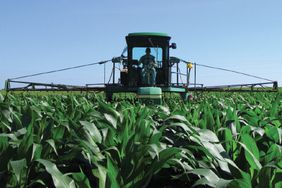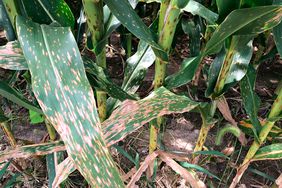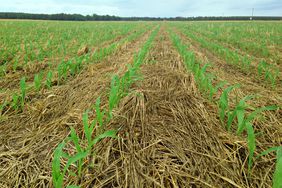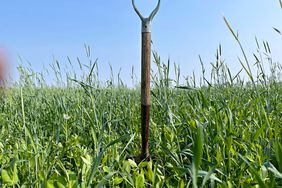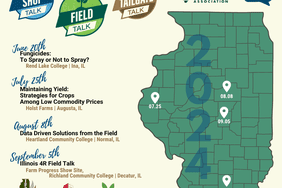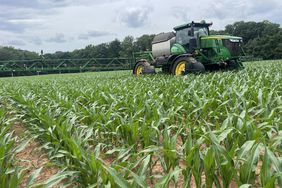:max_bytes(150000):strip_icc()/IMG_8529-0a96824004c145f19f8904cfe128cbe3.jpeg)
Karen Jones
KWS Cereals recently announced its new KWS Cover+ soil protection program at a field day near Champaign, Illinois. The company, which is the fourth largest plant breeder in the world, is offering its hybrid rye as a cover crop seed, creating another market for farmers.
“This is a first-of-its kind opportunity,” says Dr. Becca Brattain, KWS Cereals country manager. “We are allowing grain harvested from our hybrid rye to be sold to authorized licensed partners, who will clean, bag, tag, and resell as seed to be utilized as a terminal cover crop.”
To date, hybrid rye growers have had food or feed as their two market options, which was a limiting factor depending on where the farm is located. The ability to sell the seed to be used as a cover crop opens up a third market.
“With rapid growth in the cover crop sector, pressure has been placed on the seed industry to find higher quality seed to meet farmers’ sustainability needs,” Brattain adds. “We invested in meeting this challenge and are excited to provide a solution.”
According to a recent American Seed Trade Association survey, an additional 10.5 million acres of cover crops will be planted in the next five years to support conservation practices. Cover crops provide a variety of benefits, including soil erosion control, water retention, nutrient preservation, weed suppression, organic matter enhancement, and carbon capture. Rye is an especially popular cover crop in the organic farming sector due to its allelopathic properties.
“Rye secretes enzymes from its roots that actually stop the germination of other seeds, called allelopathy,” Brattain says. “The organic community really likes rye for its weed suppression ability, but conventional farmers facing herbicide-resistant weed pressure are also starting to incorporate hybrid rye because of the value it offers in breaking up their weed cycle.”
Farmers can buy KWS Cover+ products from authorized sellers and licensed partners in the United States and Canada. To find your local source and learn more about the program visit www.kws.com/us/en/products/coverplus/
There are terms and conditions associated with the use of KWS Cover+TM that closely mirror those from USDA Environmental Quality Incentives Program (EQIP). One of the most important rules is that it must be terminated before maturity. The appropriate methods for termination and full information can be accessed on the website.
:max_bytes(150000):strip_icc()/37948089_10156114335694213_6656180082995888128_o-0814a929e3b4446dad2b85d9c8bfc789.jpg)


